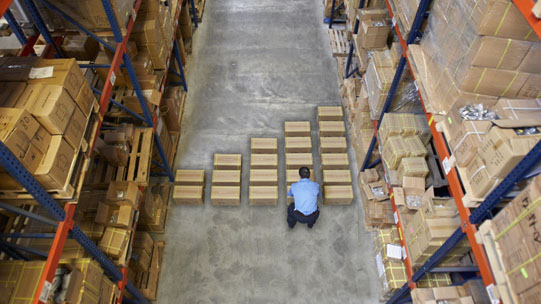How A Good CRM Helps Manage Dealer Relationships
by Black Ink Team

Big Box stores and eCommerce are a threat to independent retailers, but only if they stop working on their competitive advantage. Namely, independent retailers can offer customers a better experience when it comes to picking the right product and learning how to use it. Positive in-store experiences can help boost customer loyalty – for that reason alone, manufacturers should focus more on dealer development.
Walmart, Target, and Amazon employees don’t spark conversations with customers and teach them the in’s and out’s of using equipment, because they are trained to answer questions quickly and move on to the next one. Dealer salespeople, on the other hand, are trained to initiate beneficial relationships with customers by getting to know them and finding out what they need. Dealers often hire people who have professional experience using the product for this reason – the most qualified person to sell a piece of equipment is someone who has used it.
There are many advantages to having a solid dealer network, positive in-store experiences being just one of them. Information sharing is easier, product mixes are more flexible, and sell-in/sell-through data is more visible. Furthermore, Pros want to buy equipment from dealers because they are more equipped to cater to their needs than Big Box and eCommerce. But, building a distribution network that consists of many independent dealers isn’t exactly easy. There are many relationships to maintain and each one comes with a different set of rules to follow.
According to our 2018 Dealer Development Survey, gaining the ability to measure dealer success is a fundamental step towards building an effective distribution network. This is partly because the insights you get from studying even just one dealer are transferrable to helping maintain relationships with similar dealers in similar areas. Now, imagine that you have a tool that can warehouse, analyze, and visualize data from all your dealers all at once.
Establishing a good framework for handling data is tough to do on your own. In consumer durable goods distribution, lots of data gets shared in both directions (manufacturer > distributor > dealer and dealer > distributor > manufacturer). If data handling procedures aren’t standardized and enforced from the start, massive breakdowns in communication can occur which damage every partner along the chain. That is where a good CRM comes in.
Manufacturers solve data issues for their distributors and dealers by implementing a platform which benefits the network as a whole. Instead of having intermediate steps within data exchange routines, where massive amounts of data has be converted from one format into another and risks being corrupted or lost, a single platform replaces that headache with automated simplicity. In other words if the platform is useful for each party involved when they use it separately, then as a result it becomes ‘larger than the sum of its parts’ by virtue of it having interconnectivity.
For the last pièce de résistance the platform can be purposefully built for the industry that you working are in. That way you won’t have to waste time coming up with workarounds when the software you use isn’t exactly suited for what you are using it for. You want the right KPIs, the correct compliance rules, and the desired report templates directly out of the box – otherwise, your project to find new software will have to be followed up by another project, to fit your software to your original requirements.
